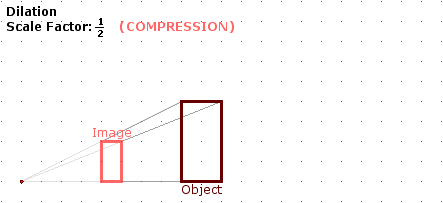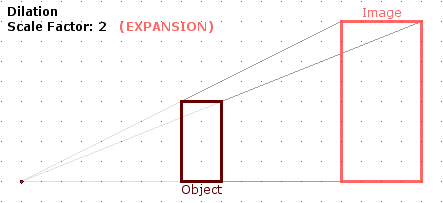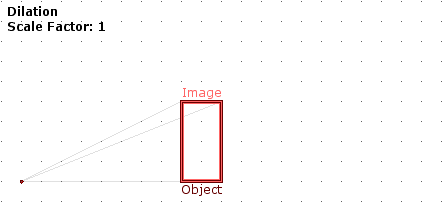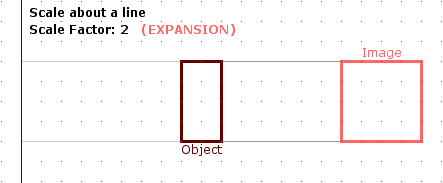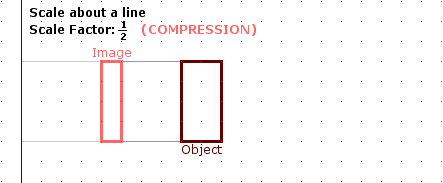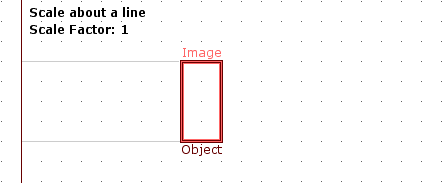Compression (Mathematical Object)
Initial Definition
A compression occurs when a mathematical object is scaled by a scale factor less in absolute value than one. When a compression occurs, the image is smaller than the original mathematical object.
If the scaling occurs about a point, the transformation is called a dilation and the "point" is called the dilation centre.
The scaling can also occur about a line, but then the image may not necessarily be similar to the original object.
There are other terms with the same meaning as compression such as the term reduction.
Examples (Dilation)
Notice in the compression example above that the image is similar to the object.
Notice in the expansion example above that the image is similar to the object.
Notice that when the scale factor is one, as in the example above, that the image is congruent to the object.
Examples (about a vertical line)
Notice in the expansion example above that the image is NOT similar to the object.
Notice in the compression example above that the image is NOT similar to the object.
